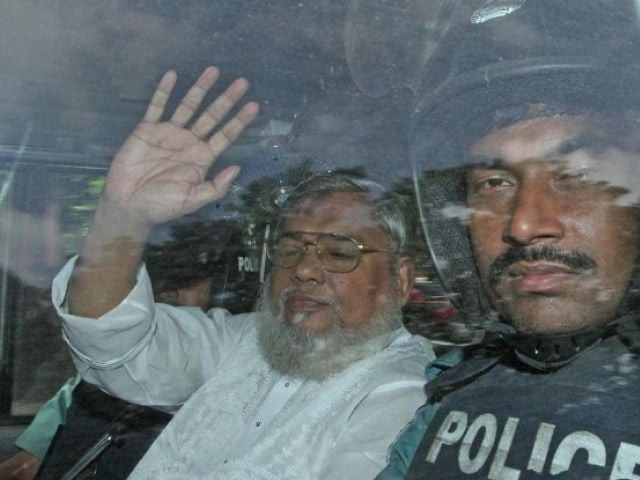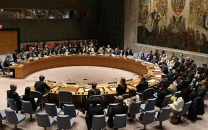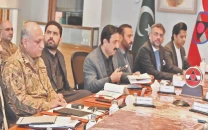MNAs decry ‘flawed’ trials in Bangladesh
Accuse Dhaka of punishing only those who supported unified Pakistan

Ali Ahsan Mohammad Mujahid (left) is the second most senior member of Bangladesh's largest Islamist party, Jamaat-e-Islami. PHOTO: AFP
Members of the National Assembly on Tuesday unanimously decried as ‘flawed’ the trials of opposition leaders sentenced to death in Bangladesh and urged the government to take up the matter in the International Court of Justice (ICJ).
Noting that recent treason trials in Bangladesh were aimed at punishing those who had supported Pakistan before separation in 1971, both ruling party and opposition MNAs said the government’s response on the issue has been ‘insufficient’. Pakistan’s foreign office (FO) and interior ministry have already raised concern over the executions.
Dhaka executions: Asma Jahangir says govt reaction out of place
During the debate in the lower house, Pakistan Muslim League-Nawaz’s Moeen Wattoo urged the FO to lodge a strong protest with Bangladeshi authorities. “We have always expressed love for Bangladesh but the response we are receiving is tragic,” he said.
His fellow party lawmaker Mian Abdul Manan said the flawed trials should be taken up before the ICJ.
Pakistan Tehreek-e-Insaf’s Shireen Mazari said the execution of opposition leaders both violated the 1974 tripartite agreement between Pakistan, Bangladesh and India, and went against international laws and principles.
Pakistan voices anguished concern at Dhaka hangings
Jamaat-e-Islami’s Sahibzada Tariqullah, meanwhile, said Bangladeshi opposition leaders were being punished for supporting a united Pakistan.
Kashmir issue and HRC membership
Opposition MNAs also criticised the PML-N government’s failure to obtain membership of the Human Rights Council (HRC), saying that Kashmir in particular would suffer as a result.
“The Kashmir issue will suffer the most due to the government’s inability to get membership of the Human Rights Council,” PTI’s Shafqat Mahmood said.
Bangladesh to hang opposition leaders in hours
“Why did the government change its ambassador [in Geneva] just a week before the elections for the council membership,” he asked.
Fellow party lawmaker Shireen Mazari said the government had not effectively canvassed for support from member countries. “It seems like the government was not taking membership in the council seriously.”
Without HRC membership, Pakistan cannot draw attention to the atrocities being committed by India in Kashmir, she added.
On the other hand, Asiya Nasir of Jamiat Ulema-e-Islam Fazl blamed the loss of membership on Pakistan’s dismal human rights record.
Six sentenced to death for brutal Bangladesh child murders
“The international community has been observing rights violations in Pakistan closely. This could be one reason why some countries didn’t vote for Pakistan in the HRC elections,” she said. “The rights of minorities [in Pakistan] are being trampled routinely,” Nasir added, drawing attention to forced conversion and marriages of Hindu and Christian girls in Punjab in particular.
Responding to criticism, Minister for States and Frontier Regions Abdul Qadir Baloch said the incumbency factor also worked against Pakistan’s bid to get re-elected to the council.
“We have won [HRC] membership three consecutive times. This could also have contributed to some countries not voting for Pakistan,” he said.
Published in The Express Tribune, November 25th, 2015.



















COMMENTS
Comments are moderated and generally will be posted if they are on-topic and not abusive.
For more information, please see our Comments FAQ